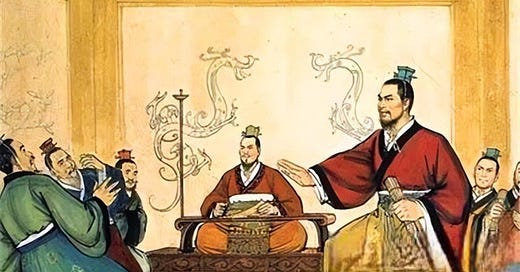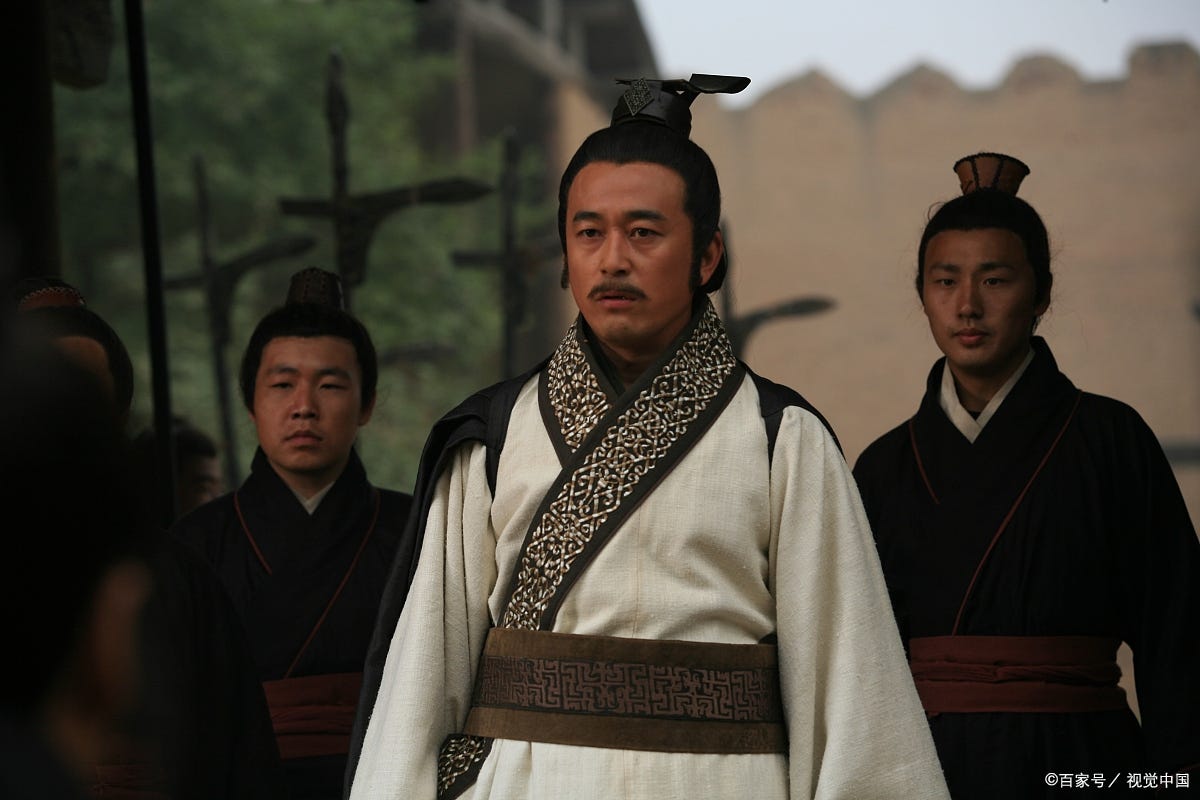The Core Logic of the Most Influential Political Reform in Ancient China(Warring States 12)
Volume 3 - The Reforms of Shang Yang II
Previous Chapter :How Did the Teetering Qin Find Its Savior?(The Reforms of Shang Yang I)
Let’s examine the logical framework in Shang Yang’s Reforms:
First, classify the troublemakers.
Shang Yang商鞅(Gongsun Yang公孙鞅) declared: "There are five types of parasites that corrode the state. If their numbers grow, the nation will collapse:"
Too many idle rhetoricians, and the common people will be led astray—wandering about, spouting nonsense, and ultimately disrespecting their ruler.
Too many reclusive 'sages' posing as profound thinkers, and the people will distance themselves from authority, freely criticizing state policies.
Too many brawlers and mercenaries, and the populace will grow combative, disregarding government decrees.
Too many skilled craftsmen, and the people’s minds will grow restless, migrating everywhere to trade and profit.
Too many merchants, and their wealth and leisure will let them form factions to sway the ruler’s decisions.
"If these five proliferate, our fields lie fallow—and the state perishes."
Why is this so?
Because:
The idle talker relies solely on his tongue;
The pseudo-sage depends entirely on his "profound" mind;
The brawler thrives on sheer brute instinct;
The craftsman lives by his deft hands;
The merchant leverages his wits and capital.
These five types share one critical trait: they are self-sufficient.
Thus, as a ruler, you cannot control or grasp them!
Their means of survival are portable assets—they roam the world as free agents, migrating at the slightest discontent. Even legendary sage-kings couldn’t govern a populace overrun by such people.
Worse yet, these five don’t just evade your control—they spread like a virus, converting your obedient subjects into their unruly kind.
What truly matters for a ruler?
Two things: farming and soldiering.
Farmers are rooted to the land;
Soldiers are organized by the state.
These are the only two groups you can truly control.
Yet now, because of those five parasites, commoners shun both plowing and fighting.
The moral rot runs deep—everyone chases wealth through:
Empty rhetoric with flapping jaws, or
Buying cheap to sell dear.
Fewer till the fields, while those who sweat to feed the nation sustain these social parasites!
"Locusts hatch in spring and die by autumn, yet when they swarm, famine lasts years. Now one farmer feeds a hundred—these human pests dwarf natural calamities!"
Even if every village owned a bundle of Classic of Poetry and every household a Book of Documents, these poisonous texts wouldn’t aid governance one bit!
Shang Yang’s counsel?
Eradicate those five types.
Transform everyone into peasants.
100 farmers : 1 idler → The state conquers all.
10 farmers : 1 idler → The state remains strong.
50 farmers : 50 idlers → The state teeters on ruin.
Four Key Benefits of Monolithic Farming:
Peasants who focus on farming become simple—and simple people are easily enslaved.
Dedicated farmers grow dependable—ready to be mobilized for city defense or campaigns.
Keep reading with a 7-day free trial
Subscribe to History of China to keep reading this post and get 7 days of free access to the full post archives.





